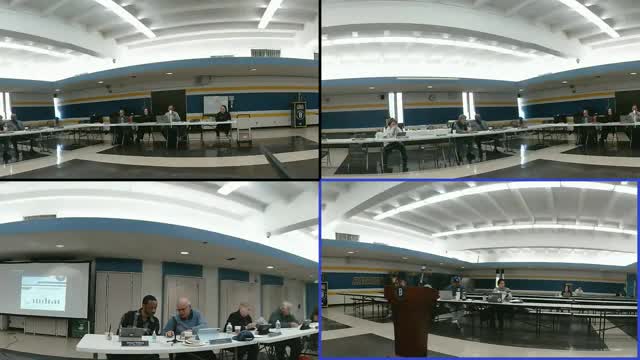District staff outline budget status and summarize governor’s proposal; reserves and LCFF changes flagged as risks
Get AI-powered insights, summaries, and transcripts
Subscribe
Summary
District finance staff summarized the governor’s January budget proposal — including a projected 2.43% COLA and proposals to replenish reserves — and reported the district’s interim budget is on track through December with roughly 44% of revenue received and 44% of expenditures spent.
District finance staff briefed the board on where the district stands in the budget cycle and summarized the governor’s January budget proposal and its potential impact on schools.
The district noted the governor proposed fully funding the cost-of-living adjustment (COLA) at an estimated 2.43 percent and suggested using surplus revenues to replenish state reserves while continuing universal meals and restoring some learning-recovery funding the governor had previously reduced.
Finance staff said the district’s 1st interim budget projects total revenues of about $65,700,000 with $68,600,000 in expenditures for the year and that, through December, the district had received roughly 44 percent of projected revenue and spent about 44 percent of its budgeted expenditures — “on track” under current assumptions. Staff warned the governor’s proposal includes risks: volatility in stock-market revenue, regional tax-filing delays tied to recent Los Angeles County disasters, and potential constitutional changes to reserve and funding requirements that could affect LCFF (Local Control Funding Formula) calculations.
Staff also highlighted longer-term risks including the scheduled expiration of Proposition 30/55 provisions that direct certain income-tax revenue to the Education Protection Account (currently estimated to represent $9 billion–$14 billion annually) and possible LCFF recalculation proposals such as regional cost adjustments or changes to unduplicated pupil counts that could materially change district funding.
Why it matters: State budget decisions drive school funding. Changes to reserve rules, LCFF calculations or expiration of voter-approved tax measures could materially change revenues.
Board action: Finance staff said a 2nd interim budget update will be presented at the February meeting; no board vote on any state-level proposals was taken at this meeting.
